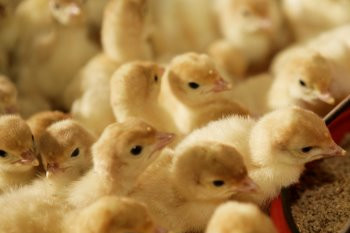Tyson Foods invests, Tanzania major poultry player

Global poultry business Tyson Foods has joined forces with South African-based agricultural firm Irvines to launch a range of large breeding sites in the foothills of Kilimanjaro and hatching factories in the coastal region.
Fourth largest poultry producer
The investment by the two firms will make the Tanzania the fourth largest poultry producer in Africa and halt its, and potential neighbouring nations’, dependency on imported poultry from Brazil and the United States.
Imports have caused thousands of farmers to lose income and to lay off workers, but the funding at the Kiliwest farms in the Siha district of Kilmanjaro and at Kerege Hatchery in Bagamoyo district will make a huge difference.
Irvines Tanzania said the breeding will start with 250,000 Cobb 500 parent broilers per week and this, according to Tanzania’s Daily News, will rise to 500,000 or 2 million broilers a month – more than enough to feed the country’s consumers.
Until now, the commercial poultry production industry, has remained infant, taking place in urban and peri-urban areas. The Tanzania Poultry Breeders Association said the slow growth was due to a lack of focus on poultry production, high capital investment costs and an unorganised market.
It also blamed “unreliable supply of day old chicks, lack of reliable supply of quality poultry feeds, high veterinary and poultry feed costs and the lack of poultry processing businesses.”
Enhanced biosecurity
The two companies will also help the government in terms of enhancing biosecurity to protect against the spread of bird flu.
The initiative is part of Tyson Foods’ long-term strategic investment in the Irvine’s Group’s poultry business. In the autumn, Tyson Foods, Acacia Foods and B.V. committed to investing in Buchan Ltd, a holding company of Irvine’s Group. Buchan owns and controls Cobb Africa and Irvine’s businesses in Botswana, Mozambique and Tanzania.
At the time, Donnie Smith, from Acacia Foods and former CEO of Tyson Foods, said: “Current projections predict that the population on the African continent will double within the next three to four decades to approximately 2 billion.
“Affordable sources of protein will be increasingly important as the population swells. Poultry is the most efficient land-based converter of feed to protein.”













